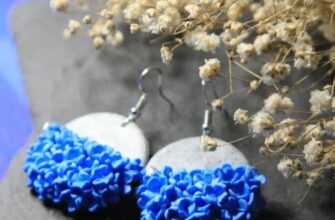Polymer clay is a versatile and popular medium used by artists and crafters to create a wide range of beautiful and intricate creations. While polymer clay is suitable for various artistic and decorative purposes, one important question that often arises is whether polymer clay is food safe. In this article, we’ll explore the considerations and factors that determine the safety of using polymer clay in contact with food.
The Composition of Polymer Clay
Polymer clay is primarily composed of PVC (polyvinyl chloride) particles and a liquid plasticizer. In its cured state, polymer clay undergoes a chemical reaction that transforms it into a solid and durable material. The plasticizer helps give the clay its pliable and workable texture. Polymer clay is designed and intended for artistic, decorative, and crafting purposes, rather than for food consumption.
Not Intended for Food Contact
While polymer clay is generally considered non-toxic after proper curing, it is not designed or intended to come into direct contact with food or beverages. There are several reasons for this:
- Leaching: The plasticizer present in polymer clay, while safe for artistic use, may not be food-grade and could potentially leach into food if the clay is not properly cured or sealed.
- Hygiene: Polymer clay is not as easy to clean and sanitize as food-grade materials. Any residue, oils, or contaminants from handling could potentially transfer to the food.
- Colorants: Some colorants and pigments used in polymer clay may not be food-safe or may not have been tested for food contact.
Alternatives for Food-Safe Items
If you’re interested in creating items for food consumption, it’s advisable to use materials that are specifically designed and labeled as food-safe. Here are some alternatives:
- Oven-Safe Glass: Glass items that are labeled as oven-safe can be used for baking and serving food.
- Ceramic and Porcelain: Food-safe ceramic and porcelain dishes and cookware can be used for both baking and serving.
- Food-Grade Silicone: Silicone molds and utensils that are specifically designated as food-grade are safe for use with food.
- Stainless Steel: Stainless steel utensils and cookware are durable and safe for food preparation.
Conclusion
In conclusion, while polymer clay is generally non-toxic after proper curing, it is not considered food-safe and should not be used for items that come into direct contact with food or beverages. If you’re interested in creating food-safe items, it’s important to use materials that are specifically designed and labeled as food-grade. Polymer clay remains a wonderful medium for artistic and decorative projects, and by using it for its intended purposes, you can create beautiful and lasting creations that enhance your artistic endeavors.
